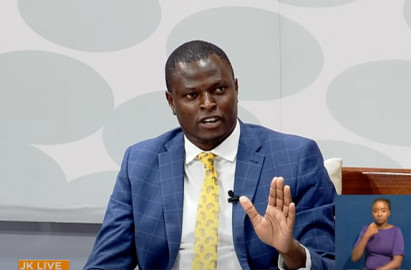Kiharu MP Ndindi Nyoro has launched a scathing attack on senior government officials, accusing them of orchestrating a “fuel levy scandal” that has led to skyrocketing fuel prices and hidden public debt. The vocal legislator expressed outrage over what he termed as a lack of transparency and accountability in the management of fuel levies and associated debt arrangements.
Speaking in Parliament, Nyoro criticised Cabinet Secretaries in charge of Energy, Transport, and the National Treasury for giving conflicting and vague explanations about the current high cost of fuel, which stands at Sh186 per litre. He also faulted the Energy and Petroleum Regulatory Authority (EPRA) leadership for providing contradictory statements that failed to clarify the issue.
Nyoro compared Kenya’s fuel prices to those of neighbouring countries Tanzania, Uganda, Rwanda, and Ethiopia arguing that Kenya’s rates are inflated not by global market trends but by exorbitant taxes and levies imposed by the state.
At the heart of Nyoro’s criticism is the Sh7 fuel levy introduced in 2024, which he revealed was used to secure a domestic loan of Sh175 billion. According to him, this loan, coupled with an estimated Sh100 billion in interest, will cost taxpayers Sh275 billion over the next seven years.
He accused the Treasury of hiding the full details of the loan, which he claimed does not appear in the official national debt register. “Why is this loan in a separate book? What are you hiding?” Nyoro asked, demanding compliance with the Public Finance Management (PFM) Act.
Nyoro took direct aim at Treasury Cabinet Secretary John Mbadi, criticising him for offering “diversionary tactics” rather than empirical data. “You cannot give vague stories about figures figures are glaring and stubborn,” he asserted.
He further questioned the loan’s collateral, warning that the fuel levy could be revoked by a simple Gazette notice, potentially exposing banks to risk. He labelled the financing model as “financial engineering gone wrong” and insisted that the Kenya Roads Board’s involvement makes the debt a sovereign obligation.
Nyoro called for leaders to stop defending “the indefensible” and urged the government to uphold transparency and responsible fiscal management.

